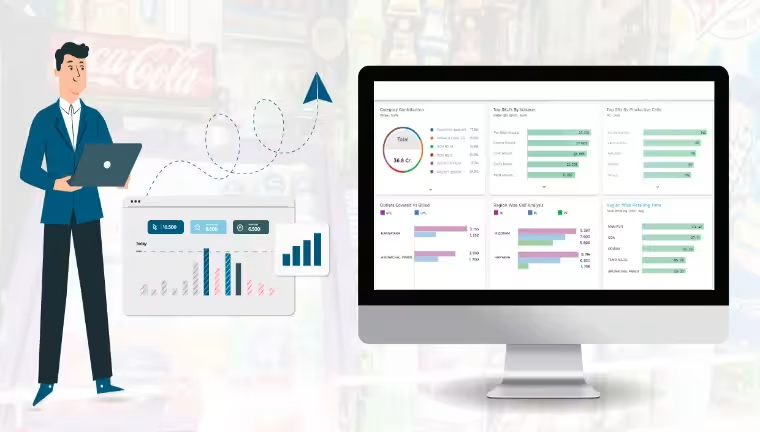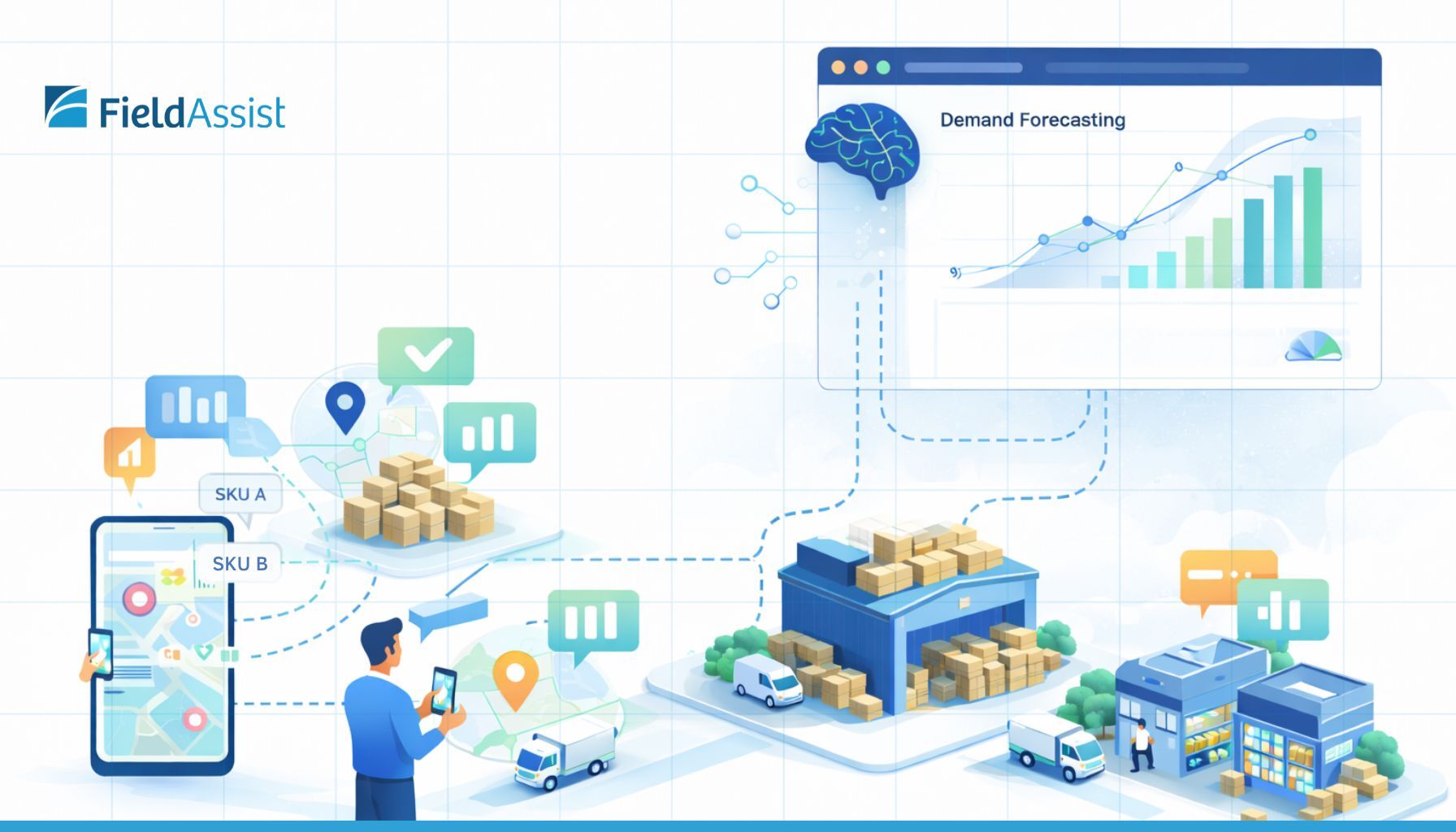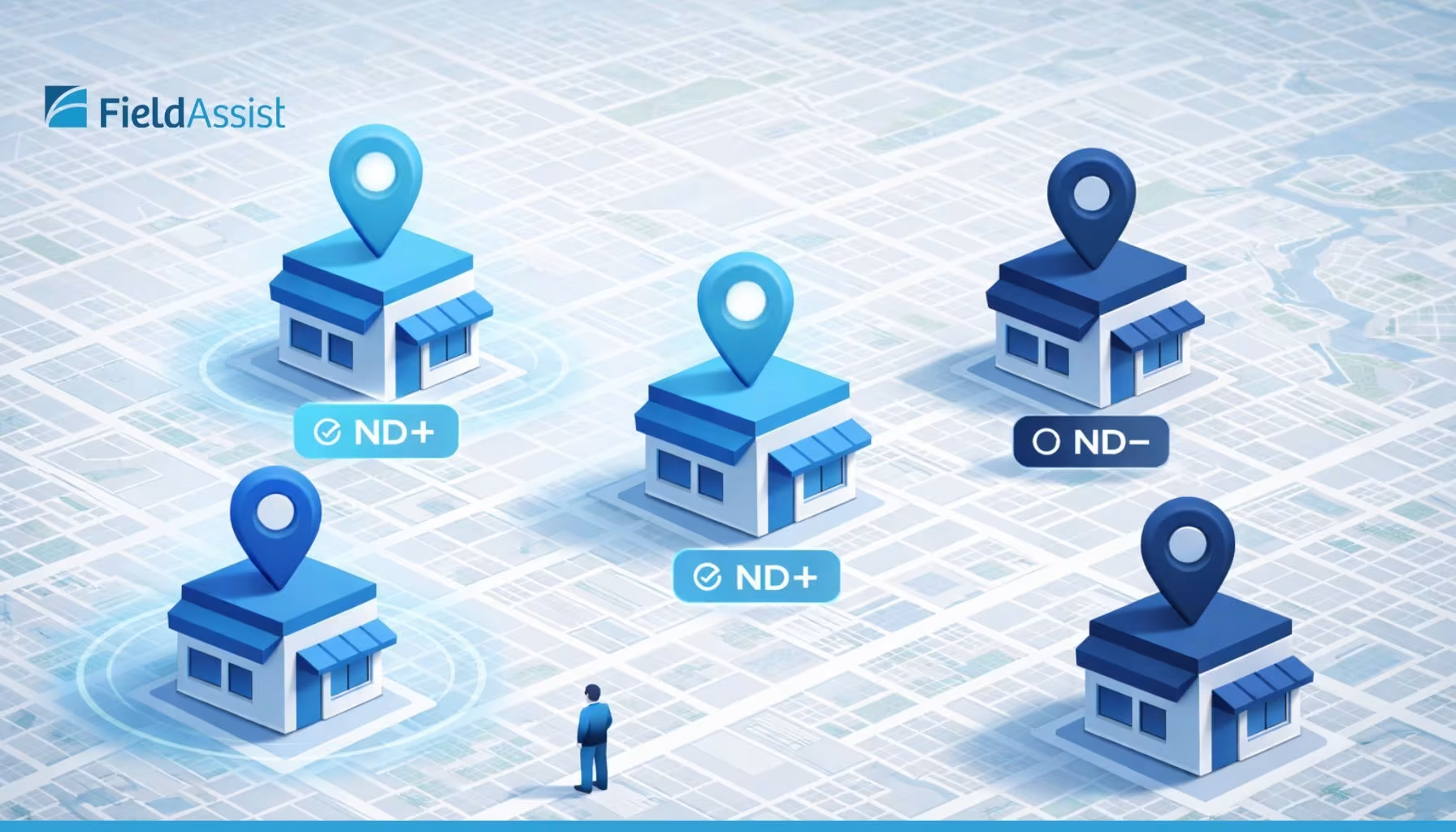Why Do Our Comprehensive Reports Make Our Customers Smile?
Read this article to know what kind of impact can comprehensive sales reports make on your revenue and on-field performance?

PWC identifies 7 crucial analytics use-cases for the Indian FMCG sector – Customer, Pricing, Markets, Sales, Business, Marketing, and Supply Chain. And all of them are driven by data that is processed to uncover actionable insights for better, smarter, and robust decision-making. While we talk about actionable insights and analytics, there is one important aspect that we just cannot overlook – reporting. The more thorough, data-intensive, intuitive, and delightful your reporting is, the more value you can drive from the data you gather.
And, with the market valuation expected to hit the 15,361 bn USD mark by 2025 with a potential growth rate of 5.4%, FMCG players need all the insights they can get to edge ahead of the competition and command a greater market share. However, the availability of data and actionable insights are two very different things.
Why Comprehensive Reporting Matters
- Get complete visibility with sales reporting software: Track every sales activity, outlet visit, and order in real time using advanced field sales report software.
- Generate detailed sales reports: Identify high-performing regions, sales reps, and SKUs with customizable daily sales reports for quick performance reviews.
- Leverage powerful sales intelligence: Use sales intelligence reports to uncover buying patterns, channel performance, and growth opportunities.
- Enable smarter retail decisions: Combine sales intelligence with retail intelligence to understand market dynamics and consumer demand trends.
- Integrate inventory insights: Connect your inventory tracking system or inventory management software for seamless visibility from warehouse to retail shelf.
- Forecast revenue accurately: Use data-backed insights and comprehensive sales reports to enable confident revenue forecasting and strategic planning.
- Drive faster, data-led decisions: Comprehensive reporting helps teams move from guesswork to precision, ensuring every sales action contributes to business growth.
The Benefits of Comprehensive Reporting Strategies
Implementing a comprehensive reporting strategy gives brands the power to make smarter, faster, and more confident decisions. Here’s how the right tools and insights transform everyday operations:
- Clearer Business Visibility with Sales Reports
- Detailed sales reports help leaders monitor regional performance, outlet coverage, and sales rep productivity, ensuring nothing slips through the cracks.
- Improved On-Ground Tracking with Field Sales Report Software
- A robust field sales report software captures real-time data from the market—store visits, orders, collections, and returns—giving sales managers an instant overview of field performance.
- Data-Driven Insights through Sales Reporting Software
- Using an advanced sales reporting software, businesses can convert raw data into visual dashboards that reveal growth opportunities and underperforming areas.
- Smarter Decisions with Sales Intelligence
- Embedded sales intelligence tools help teams analyze buying trends, customer behavior, and outlet-wise performance for more informed decision-making.
- Real-Time Performance Tracking via Daily Sales Report
- Automated daily sales reports eliminate manual errors, providing accurate insights into daily sales volumes, order value, and field productivity.
- Actionable Insights from Sales Intelligence Reports
- Comprehensive sales intelligence reports highlight SKU performance, regional trends, and revenue leaks—helping brands plan promotions and product pushes effectively.
- Enhanced Retail Execution through Retail Intelligence
- Integrated retail intelligence connects shelf data, outlet visibility, and sales analytics to identify gaps and ensure perfect in-store execution.
- End-to-End Visibility with Inventory Tracking System
- A connected inventory tracking system syncs stock data across distributors and warehouses, reducing stockouts and overstock situations.
The Risks of Not Having Comprehensive Reporting Strategies
Many businesses underestimate how much they lose when they don’t invest in a comprehensive reporting strategy. Without a unified system for tracking sales, inventory, and performance, teams operate blindly—reacting instead of anticipating. Here’s what can go wrong:
1. Limited Visibility into Performance
Without accurate sales reports, leaders struggle to see which territories, outlets, or products are underperforming, leading to missed opportunities and poor market coverage.
2. Disconnected Field Operations
In the absence of a robust field sales report software, on-ground teams often rely on manual updates or spreadsheets, resulting in inconsistent data and delayed decisions.
3. Poor Decision-Making without Sales Reporting Software
Without sales reporting software, management lacks real-time insights into revenue, product movement, and team efficiency, which slows down business agility.
4. Missed Insights Due to Weak Sales Intelligence
The lack of sales intelligence makes it impossible to detect early shifts in demand, competitor activity, or outlet behavior, impacting both sales growth and profitability.
5. Inefficient Tracking Without Daily Sales Report Automation
When daily sales reports are maintained manually, errors and delays increase, causing confusion around targets, collections, and achievement metrics.
6. Incomplete Analysis from Missing Sales Intelligence Reports
Without structured sales intelligence reports, businesses fail to correlate data across SKUs, categories, and geographies, missing patterns that could drive growth.
7. Weak Retail Execution Without Retail Intelligence
Without retail intelligence, brands lose sight of what’s actually happening on shelves, SKU visibility, share of shelf, and compliance, leading to poor in-store impact.
Key Areas Where FMCG Companies Struggle to Get Accurate, Insightful Data
Even leading FMCG brands often struggle to extract meaningful insights from their sales reports and analytics dashboards. Without intelligent sales reporting software and field sales report software, decisions are delayed and visibility is lost. Here are the main problem areas:
1. Trade Promotion Optimization
Without robust sales intelligence reports, FMCG companies can’t accurately calculate base volume, true promotion cost, or ROI. Advanced sales intelligence tools help measure campaign impact, identify key demand drivers, and optimize future promotions for higher returns.
2. Sales Forecasting
Many legacy systems lack predictive capabilities for precise revenue forecasting. With modern sales reporting software, brands can analyze historical data, apply statistical models, and forecast future sales volumes with better accuracy.
3. Sentiment Analysis
Inaccurate or unstructured daily sales reports make it hard to capture real customer sentiment. Combining sales intelligence reports with retail intelligence helps companies understand market perception, buyer behavior, and emerging opportunities.
4. Inventory Optimization
Without a connected inventory tracking system or inventory management software, FMCG brands risk stockouts or excess inventory. Real-time reporting at the SKU level ensures better forecasting and efficient replenishment.
5. Assortment Intelligence
Lack of competitive visibility hurts portfolio planning. With retail intelligence and field sales report software, companies can monitor competitor assortments, pricing, and shelf presence—helping them close portfolio gaps and improve market share.
Why FMCG Brands Love FieldAssist’s Comprehensive Sales Reports
FieldAssist’s comprehensive sales reports deliver delight to FMCG brands by combining deep sales intelligence with smart retail intelligence. In today’s fast-paced FMCG world, where every outlet, SKU, and beat matters, having a robust sales reporting software is no longer optional — it’s essential. As companies adopt technology and data analytics faster than ever, the ones who stay ahead are those that use intelligent retail analytics to shape their sales strategy.
What kind of impact can such comprehensive sales reports make on your revenue and on-field performance?
The comprehensive sales reports from FieldAssist not only help you reach more people by offering actionable insights but also help you amplify your product reach.
Using FieldAssist’s sales reports, a global FMCG brand in India was able to improve its team adherence by 46%, which in turn boosted sales by 40%, and expedited a whopping 100% increase in its retail outlets.
With delightful, engaging, and intuitive reporting in the form of visuals, you can make data-driven decisions and leverage business intelligence to steer your business toward sustainable growth.
So when your Salesforce automation solution gives you the right reporting mechanism, it not only allows you to choose from hundreds of pre-built filters to personalize your sales reports, but also allows for an exhaustive analysis of data that is no longer siloed.
Furthermore, smarter and more intuitive reporting enables you to draw decisive inferences from the vast amount of data you generate every day. Hence, you can drill deep into the hidden trends and refine your business strategies accordingly for various purposes, such as increasing sales, increasing brand visibility, and increasing market share.
Make every sales report count. Try FieldAssist today.





.avif)

